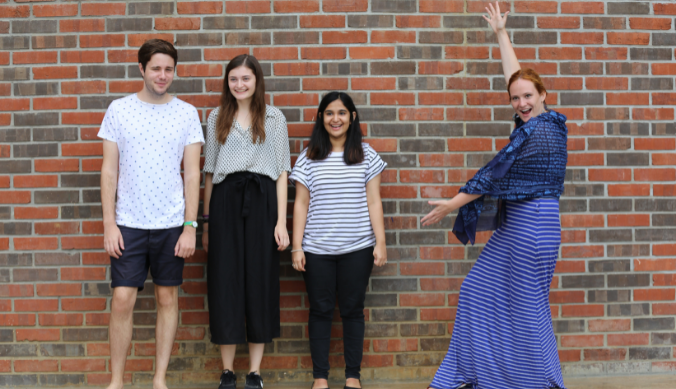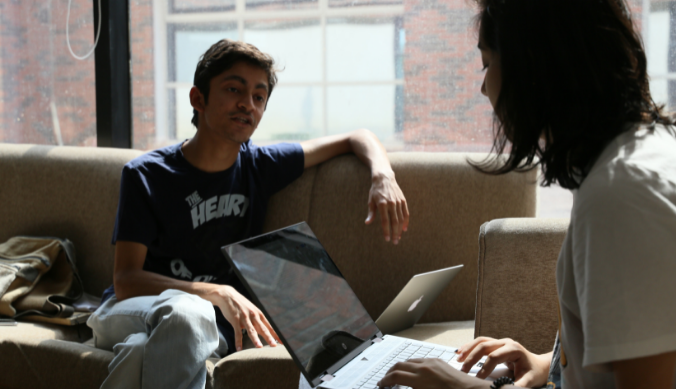Ashoka’s Research Quest | Democratic Peace and its Importance in International Relations Scholarship
Assistant Professor Bann Seng Tan talks about the causes and effects of democratisation on interstate conflict behaviour and the effective use of foreign aid in democracy promotion.
Shreya Chatterjee
19 November, 2020 | 8 min readDemocratic peace is the idea that democracies do not wage wars against each other.
His dissertation research studies the effects of democratisation on interstate conflict behaviour. He argues that democratisation into joint democracy deescalates a rivalry. The magnitude of de-escalation is however, conditional on the relative power between the rivals.
“The study is significant because it goes beyond the selection effect of democracy, or the tendency of democracies not to become rivals, to focus on how democracies behave in rivalry. I test the empirical implications of the institutional and normative accounts of the democratic peace against each other. I also consider the Peru-Ecuador rivalry (In Latin American) as a case study. I consider the rivalry during its period of democratic transition (from 1979 to 1991), and during the period of autocratic transition (from 1980 to 2000),” he said.
The interesting fact is that Bann Seng tests the argument using both quantitative and qualitative methods.
In this video, he sheds light on his research interest, in-detail, the research methodology that he has used and how the pandemic COVID-19 has impacted international relations.
His research focusses on the argument – if democracies do not fight each other, then the spread of democracy becomes one of the ways to promote international peace. One such way is through foreign aid.
How might we use aid to nudge autocratic recipients towards democracy? The tying of future disbursement of aid to good behavior on the part of recipients appeals because it offers a way for donors to influence recipients’ behaviour while placating internal critics of aid.
He said, “Such donor pressure should take into account the fact that democratisation is politically costly for the aid recipients. Recipients can be expected to exploit aid fungibility and seek alternative donors where they can. I speculate there may be two conceptual groups of recipients, distinguished by their relative importance to donors. Primary recipients, or states with the strategic or economic attributes that matches the donors’ priorities, should be able to switch between alternative donors for the needed aid.
Secondary recipients, or states whose strategic or economic attributes do not match the donors’ priorities, should have a harder time finding alternative donor. Consequently, donor pressure to democratise should be more effective on secondary recipients than on primary recipients.”
Bann Seng also studies the political economy of natural disasters, especially exploring the authoritarian reactions to disaster aid which typically means studying the reactions of autocratic government to humanitarian relief in the aftermath of disasters.
“While natural disasters do not respect political boundaries, states’ responses do. I argue that authoritarian regimes strategically choose from aid facilitation, obstruction or diversion depending the political relevance of the disaster victims and the need for performance legitimacy.
When key supporters of the regime are afflicted by the disaster and the regime needs performance legitimacy, it is in the interest of authoritarian regimes to facilitate foreign relief. When neither holds true, they opt to obstruct aid. Between the two policy extremes, we expect a policy mix of facilitation with aid diversion,” said Bann Seng.
Bann Seng Tan received his Ph.D. from the Graduate Center at the City University New York (CUNY). Prior to joining Ashoka, he was an Assistant Professor of International Relations at Bogazici University (Turkey). He taught at the College of William and Mary, at Queens College (CUNY), and at Hunter College (CUNY) before. He was also a senior research scholar at New York University. Understand more about his research here.
Ashoka’s Research Quest Campaign
Ashoka Research Quest is a newly launched campaign that showcases the in-depth research that Ashoka University offers. This will be a recurring affair. Get an insight into various subjects through a detailed conversation with the faculty.
So, let’s talk about research!










